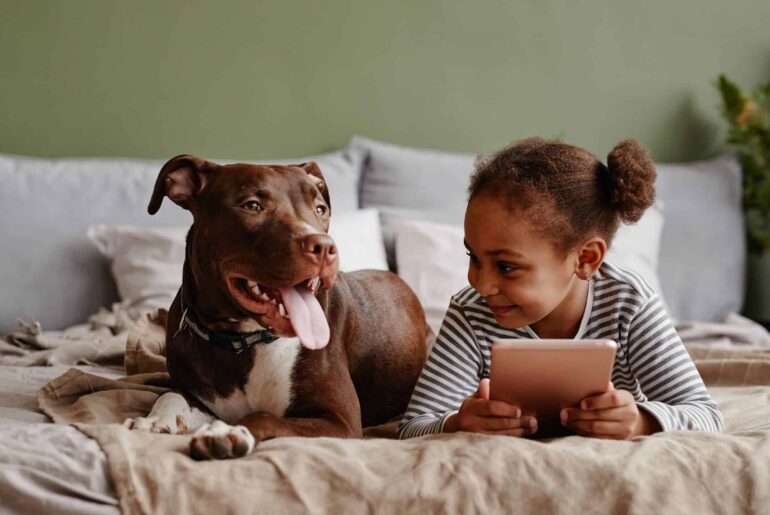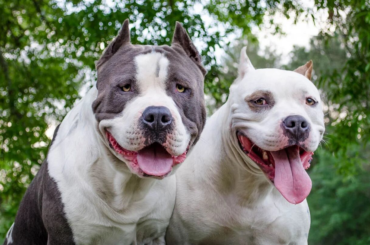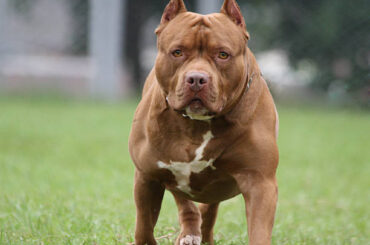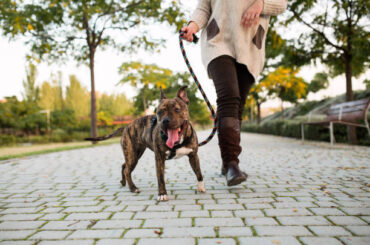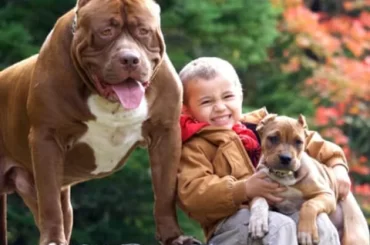The safety of any dog breed, including Pitbulls, around children depends on various factors, including the individual dog’s temperament, socialization, training, and the supervision provided by adults. It’s essential to recognize that, like any other breed, Pitbulls can be gentle and affectionate when raised and trained properly.
Factors to Consider:
- Temperament: Pitbulls, when well-socialized and properly trained, can be loving, loyal, and good-natured. Their temperament is influenced by genetics, early experiences, and the environment in which they are raised.
- Socialization: Early socialization is crucial for all dogs, including Pitbulls. Exposing them to various people, environments, and experiences from a young age helps build positive behavior and reduces the likelihood of fear or aggression.
- Training: Consistent and positive training is key to ensuring a Pitbull’s good behavior. Basic obedience commands, such as sit, stay, and recall, are important for managing interactions with children and others.
- Supervision: Regardless of the dog’s breed, always supervise interactions between dogs and young children. This is important for the safety of both the child and the dog. No dog should be left alone with a young child, especially if there is uncertainty about the dog’s behavior.
- Individual Variability: Recognize that individual dogs within a breed can vary widely in temperament. Factors such as genetics, early socialization, and the owner’s training practices play a significant role in shaping a dog’s behavior.
Myths and Misconceptions:
- Aggression Stereotypes: Pitbulls, unfortunately, have been subject to negative stereotypes that link them with aggression. However, studies have shown that breed-specific legislation (BSL) and breed bans are not effective in reducing dog bite incidents. Focusing on responsible ownership and individual dog behavior is more productive.
- Breed Mislabeling: Breed identification based on appearance alone can be inaccurate. Dogs labeled as Pitbulls may not always have a significant genetic connection to the breed, and their behavior should be assessed on an individual basis.
Responsible Ownership:
- Training and Socialization: Invest time and effort into training and socializing your Pitbull. Enroll in obedience classes, expose them to various environments, and teach them appropriate behavior around children.
- Positive Reinforcement: Use positive reinforcement techniques to encourage good behavior. Reward your Pitbull for calm and gentle interactions with children, reinforcing positive associations.
- Regular Exercise: Provide regular exercise to help channel their energy in a positive way. A tired dog is less likely to engage in unwanted behaviors.


